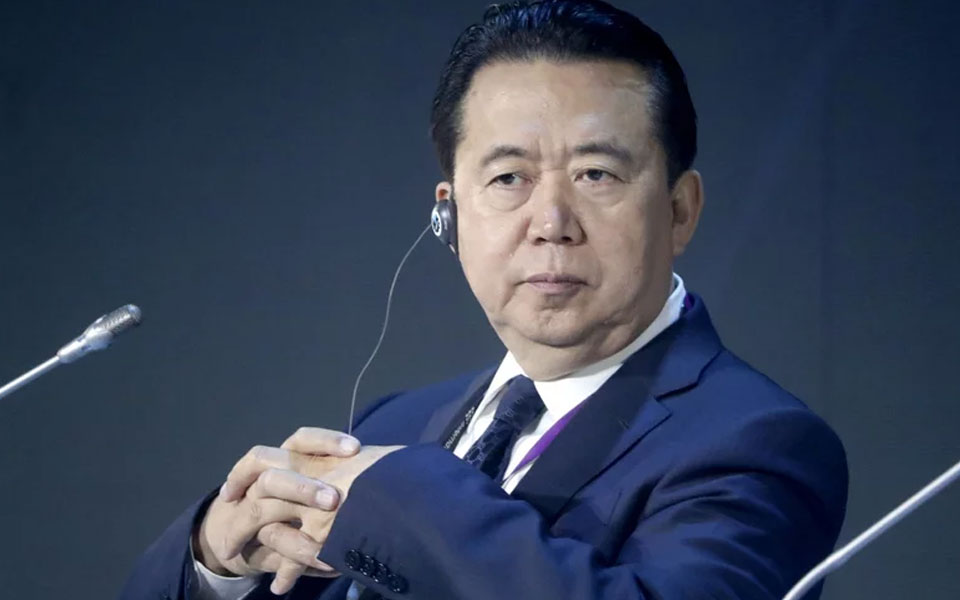HONG KONG: Interpol announced Sunday that it had accepted the resignation of its president, Meng Hongwei, who disappeared in China in late September. The international police organization's statement came shortly after China revealed that Meng was under investigation for unspecified crimes.
Interpol said Meng's resignation was effective immediately.
China's top anti-corruption agency said in a one-sentence statement Sunday that Meng was suspected of breaking the law, without giving details. Meng, who is concurrently a Chinese deputy minister of public security, was elected to head Interpol in 2016 and slated to serve at its Lyon, France, headquarters until 2020.
The unusual case erupted into public view on Friday, when French authorities announced a search for the Chinese national after his wife, Grace, who is living in France, reported him missing to local police.
The mystery deepened dramatically over the weekend, as Grace Meng told reporters in Lyon to say that her husband had sent her a knife emoji as a way of telling her he was in danger before he vanished. Grace Meng covered her face during the news conference because she feared for her safety, the Associated Press reported.
Interpol said Friday it was seeking information about its president from Chinese law enforcement.
Meng may have been involved high-stakes power struggles, said Dali Yang, a professor of political science at the University of Chicago.
"He was in an international post that is significant to China's ability to influence international events," Yang said. "This damages the image of the Chinese system and shows how it takes people in without due process, so clearly they saw significant, overriding political reasons to do this."
Meng's seizure on suspicion of corruption is an ironic reversal for a Chinese official whose ascent to the top of Interpol was supposed to aid Beijing's efforts in catching corrupt runaway officials. Under his watch, China submitted to Interpol extensive lists of fugitives suspected of corruption and wanted for extradition.
China is now in the sixth year of a vast anti-corruption campaign launched by President Xi Jinping that has netted thousands of officials and business executives. Critics in China and abroad have warned that many corruption investigations are politically motivated and used to consolidate Xi's power and topple rival factions.
In recent years, investigators at the Communist Party's influential Central Commission for Discipline Inspection - and an even more powerful body established this year by Xi, the National Supervisory Commission - have signaled a willingness to pursue officials in the highest levels of China's security apparatus and military.
Zhou Yongkang, a former domestic security czar, was sentenced to life in 2015 for graft, and the head of counterintelligence, Ma Jian, was prosecuted two years later.
courtesy : ndtv.com
Let the Truth be known. If you read VB and like VB, please be a VB Supporter and Help us deliver the Truth to one and all.
Mumbai (PTI): More than 8.9 lakh girls in the age group of 14-15 years in Maharashtra will be administered the HPV vaccine to prevent cervical cancer, Health Minister Prakash Abitkar said in the legislative council on Wednesday.
Replying to a Calling Attention Motion, Abitkar said a three-month vaccination drive will be launched on Women's Day (March 8).
"During the drive, the HPV vaccine will be administered to 8.94 lakh females in the age group of 14-15 years," he said.
He said another group of girls in the same age bracket will be covered next year.
The minister added that the government is also planning to screen everyone above 30 years of age for oral, breast, and cervical cancer.
The nationwide Human Papillomavirus (HPV) vaccination campaign was launched by Prime Minister Narendra Modi on Saturday.





